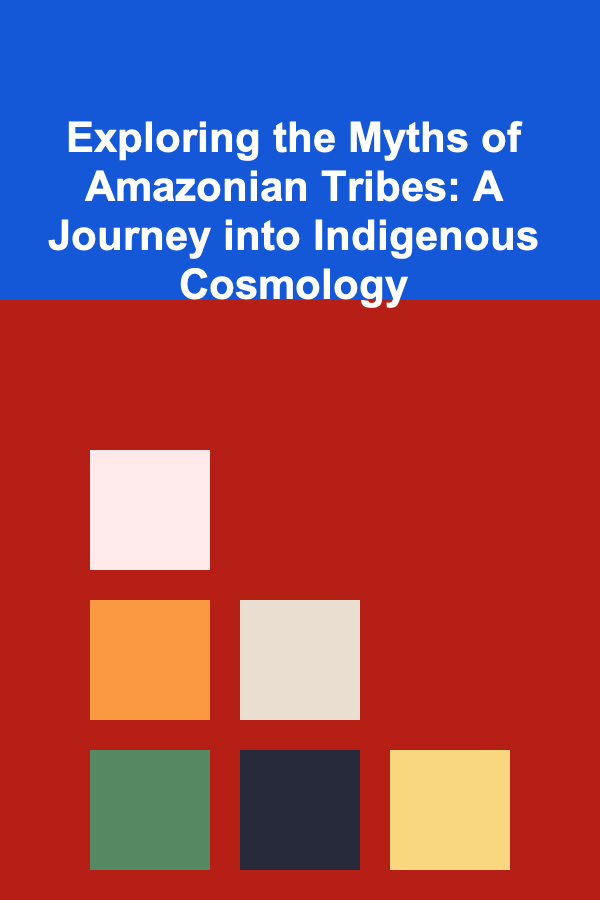
How to Write Believable Fantasy Magic Systems
ebook include PDF & Audio bundle (Micro Guide)
$12.99$11.99
Limited Time Offer! Order within the next:

Fantasy literature has long captivated readers with its sense of wonder, adventure, and escape into entirely new worlds. Central to many of these stories are magic systems---complex and intricate frameworks that define how magic works within the story's universe. A well-crafted magic system can enhance the worldbuilding of a fantasy setting, create tension in the plot, and deepen the complexity of characters' motivations. However, one of the hardest parts of writing fantasy is creating a magic system that feels believable and consistent within its own rules.
A magical system, while fantastical in nature, must adhere to a set of internal logic and limitations to make it feel grounded and realistic to readers. Magic that operates without clear limitations or consequences can often feel contrived or out of place, undermining the story's immersion. This article will explore how to craft a believable fantasy magic system that complements your worldbuilding and enhances the overall narrative.
Establish Clear Rules and Limitations
The first step in creating a believable magic system is to set clear rules and limitations. Magic should never feel like an all-powerful tool that can solve any problem, or it will become a deus ex machina. Magic needs to have boundaries that prevent characters from overusing it or making their tasks too easy. These limitations can be based on various factors such as energy, knowledge, time, materials, or physical laws.
Key Considerations for Magic System Rules:
- Energy Source: Where does the magic come from? Is it drawn from the environment, from the caster's own life force, or from a separate realm or entity? The source of the magic will influence how it is used and controlled.
- Cost of Magic: Every time magic is used, there should be a cost---either physical, mental, or social. This creates a sense of balance and keeps magic from becoming overpowered. For example, using magic could drain the caster's energy, shorten their lifespan, or require them to make a moral sacrifice.
- Mastery and Knowledge: Some magic systems require deep knowledge and study, while others may be more intuitive or instinctual. Consider how your characters access magic---through rigorous training, bloodlines, or personal affinity---and ensure that they don't gain access to infinite power without the necessary effort.
By setting limits on how and when magic can be used, you ensure that it doesn't overpower the narrative and that characters must still struggle and grow in meaningful ways.
Tie Magic to the World and Its Culture
Magic should feel integrated into the world in which it exists. It's not enough for magic to simply be a tool for the protagonist; it must also impact society, politics, religion, and culture. A believable magic system should shape the world, influence its social structure, and inform its traditions.
Ways Magic Can Shape a Fantasy World:
- Social Hierarchy: In many fantasy settings, magic is restricted to certain classes or groups. For example, the nobility might possess magic, while commoners do not, leading to tensions and inequality. This creates room for social conflict and provides depth to the world.
- Religious Significance: Magic may be tied to religious beliefs or gods. Some cultures might revere magic as a divine gift, while others may fear it as a curse. Consider how religion and magic influence each other and how the use of magic could be governed by sacred rituals or taboos.
- Political Power: Magic often becomes a form of political power in fantasy settings. A kingdom's ruling class might harness magic to maintain control over the population, or magical items might be hoarded as symbols of wealth and status.
- Cultural Practices: Magic can be woven into everyday life and practices. Rituals, festivals, and traditions may all revolve around magical acts or the use of magical items. This reinforces the idea that magic is an integral part of the world and is not simply a plot device.
By tying magic to the culture and structure of your world, you give it more depth and make it feel like a natural part of the setting.
Create a Magic System with Depth and Complexity
A believable magic system often has many layers. It's not just about casting spells or wielding power; it's about understanding how the magic works and the complexities of its practice. When designing a magic system, you should consider its rules, its practitioners, and the broader consequences of using magic.
Building Complexity into Your Magic System:
- Magic Schools or Disciplines: Just as there are different types of science and art, magic can be broken into different schools or disciplines, each with its own philosophy and rules. For instance, elemental magic, illusion magic, necromancy, and divination all have different approaches and ethical considerations.
- Hierarchy of Power: Magic should have tiers or levels. Not all magic should be equally accessible. The best practitioners may have access to advanced techniques, while beginners struggle to master simple spells. This hierarchy makes magic feel like something that takes time and dedication to master.
- Magic Items and Artifacts: Magical objects can add complexity to your system. Consider how magical items work within your world---whether they are rare artifacts with special powers or common tools imbued with magic. These items should have their own set of rules, strengths, and weaknesses.
The more intricate your magic system is, the more immersive your world will feel. However, it's important to strike a balance---if your magic system is too complex, it may alienate readers. It should be deep but also intuitive enough to follow.
Consider the Ethics and Morality of Magic
One of the most fascinating aspects of a well-designed magic system is how it interacts with morality and ethics. Magic can be both a blessing and a curse, and how characters use it will speak volumes about their values, desires, and weaknesses. Magic has the potential to corrupt or elevate those who wield it, and this creates compelling moral dilemmas.
Ethical Dilemmas in Magic:
- Consequences of Power: Magic can corrupt the user if not carefully controlled. A character may start with good intentions but find themselves abusing magic for personal gain, leading to unforeseen consequences. This internal struggle adds emotional depth to your characters and raises questions about power, control, and responsibility.
- Magical Exploitation: In some settings, magic is used to exploit others. For example, a magical society might use magic to enslave or manipulate the weaker members of society. The ethical implications of such practices can provide rich social and political conflict in your story.
- Forbidden Magic: Certain types of magic might be considered taboo or forbidden, and characters who delve into these dark arts could face both personal and societal consequences. The temptation to use magic for morally gray purposes can create complex, conflicted characters who must grapple with their choices.
By exploring the ethical aspects of magic, you can deepen your characters and their struggles while also making your magic system more relatable and thought-provoking.
Establish a Limit on Magical Resources
One way to make your magic system feel more grounded and believable is by establishing limits on magical resources. This could involve the availability of magic itself, the materials needed to perform magical acts, or the toll it takes on the user. By creating scarcity or restrictions, you add tension to your magic system and prevent it from becoming overpowered.
Ways to Limit Magical Resources:
- Magical Materials: Magic could rely on rare or finite resources---crystals, herbs, or rare metals---that limit how much magic can be used. The scarcity of these resources could lead to competition and conflict.
- Magical Fatigue: Using magic could have physical or mental consequences. Magic users may experience exhaustion, aging, or even death after using their powers too frequently.
- Magic as a Finite Resource: In some systems, magic is a finite resource that can only be accessed in limited quantities, such as a certain number of uses per day or a set number of spells.
By restricting access to magic, you force characters to think strategically and use their powers more wisely. It also prevents magic from becoming an easy solution to every problem in the story.
Incorporate Magic's Relationship with Nature and the Environment
In many successful magic systems, the magic is closely tied to the environment or natural forces of the world. Magic is often seen as something that can be drawn from the land, the elements, or even from living creatures. This relationship with nature can add both realism and complexity to your system.
Ideas for Nature-Inspired Magic:
- Elemental Magic: Magic drawn from the elements---earth, water, fire, air---can be a great foundation for a system that feels both natural and elemental. The availability of these elements could vary depending on the environment (for example, fire magic might be weaker in damp regions).
- Magic Linked to Flora and Fauna: Magic users could have the ability to draw power from plants, animals, or the land itself. This creates a deeper connection between the magic and the world, emphasizing themes of harmony or exploitation.
- Seasons and Cycles: Magic could be tied to the seasons, moon phases, or other natural cycles. This approach brings an added layer of depth, as characters' magical abilities may fluctuate or be restricted based on these factors.
Magic that interacts with the natural world not only makes the system feel more grounded but also offers opportunities for unique plot twists and character motivations tied to environmental factors.
Avoid Overuse of Magic
Finally, a key part of writing a believable magic system is knowing when not to use magic. One of the most common pitfalls in fantasy writing is the overuse of magic to solve every problem. While magic can be an incredible storytelling tool, it should not be used as a crutch.
Characters should still face real challenges that require them to think, grow, and adapt. If they can simply magic their way out of every conflict, the stakes are reduced, and the narrative becomes predictable.
How to Avoid Overuse of Magic:
- Limit Access to Magic: Characters may not always have access to their magical abilities when they need them. Perhaps they are too far from a source of power, or they are unable to use magic in a certain location.
- Require Personal Effort: Magic shouldn't be a catch-all solution. It should often require effort, sacrifice, or preparation to be effective. Characters might have to go on a quest to find rare ingredients or seek out a powerful mentor.
- Introduce Consequences: The more magic is used, the greater the consequences. If a character uses magic too often or recklessly, they could face backlash from the world, society, or even from within themselves.
By creating a balanced and thoughtful approach to magic use, you ensure that your characters remain grounded, and the stakes stay high.
Conclusion
Writing a believable fantasy magic system involves much more than simply inventing spells or magical creatures. It requires careful thought about how magic works, its limitations, and its impact on both individuals and society. A great magic system adds depth to the world, raises the stakes of the story, and challenges the characters in meaningful ways. By integrating rules, limitations, ethical dilemmas, and consequences, you can create a magic system that enhances your narrative and immerses readers in a world that feels both fantastical and real.
Reading More From Our Other Websites
- [Organization Tip 101] How to Use Baskets for Stylish Home Organization
- [Organization Tip 101] How to Choose the Right Shoe Storage for Small Spaces
- [Organization Tip 101] How to Use Shoe Organizers for Craft Supply Storage
- [Personal Care Tips 101] How to Choose Lip Balm to Reduce Lip Inflammation
- [Home Storage Solution 101] How to Organize Your Entryway: Innovative Shoe Rack Ideas That Double as Decor
- [Personal Care Tips 101] How to Create a Skincare Routine with Soap
- [Home Budget 101] How to Evaluate the Success of Your Budget with a Home Budget Planner
- [Personal Investment 101] How to Build an Emergency Fund While Investing
- [Home Renovating 101] How to Calculate the Cost of Remodeling Your Entire House
- [Home Cleaning 101] How to Prevent Dust Build-Up in Your Home

Earning Passive Income through Deep Learning Automation
Read More
How to Start a House Renovation Business: Key Steps to Success
Read More
Exploring the Myths of Amazonian Tribes: A Journey into Indigenous Cosmology
Read More
Designing for Cross-Reality Experiences: A Deep Dive
Read More
10 Tips for Grant Proposal Writing
Read More
10 Networking To-Do List Items for College Students
Read MoreOther Products

Earning Passive Income through Deep Learning Automation
Read More
How to Start a House Renovation Business: Key Steps to Success
Read More
Exploring the Myths of Amazonian Tribes: A Journey into Indigenous Cosmology
Read More
Designing for Cross-Reality Experiences: A Deep Dive
Read More
10 Tips for Grant Proposal Writing
Read More